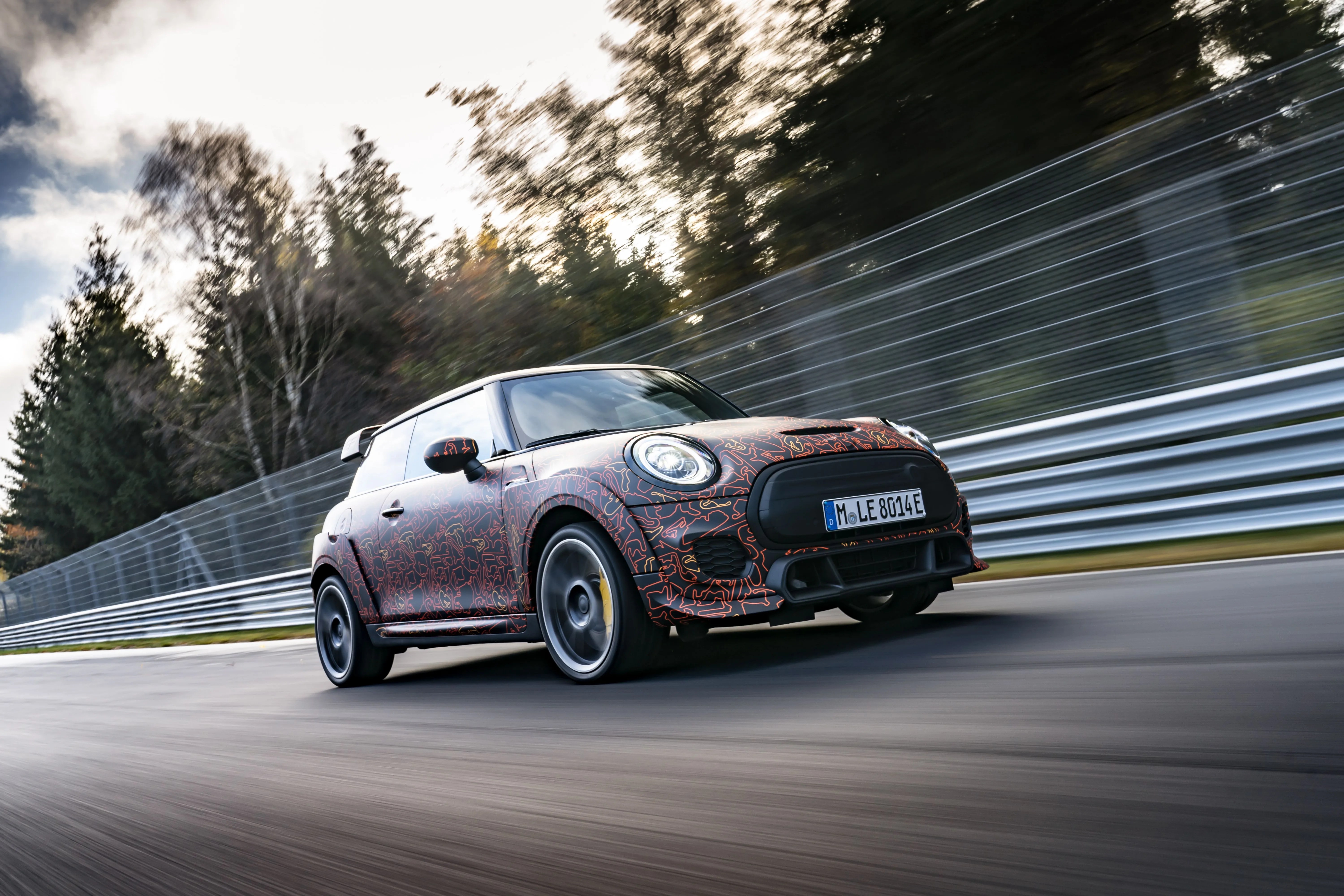These days, electric cars come in (or are set to arrive in) all shapes and sizes: sedans, SUVs, pickup trucks, sports cars, even semi trucks. Mini, however, is about to see how the realm of hot hatches can adapt to a future of electric mobility: the carmaker has announced its intentions to expand its John Cooper Works performance sub-brand with an EV version of its peppiest vehicles.
“It’s time to translate the passion for performance of the John Cooper Works brand to electromobility,” Mini brand head Bernd Körber said in a statement issued December 1st. “That’s why we’re working to develop concepts for electric John Cooper Works models.”
It’s a smart move for the quirky, BMW-owned compact car brand. Currently, Mini only offers a single EV: the Mini Electric. That car is light on range even by 2020 standards — it’ll only do 110 miles on a full charge — but makes up for that with nimble handling, ample standard features and an appealing price of around $23,000 after federal tax credit. But the future of the automobile is trending more and more towards electric power by the day; Great Britain, the nation to which Mini’s image is inexorably tied, has announced plans to ban sales of new internal-combustion vehicles in a decade’s time, and many other countries have announced similar plans.
While Mini’s announcement was sparse on details, extrapolating out from current John Cooper Works models should give us a general idea of what to expect of any JCW EV. Today’s gas-powered models pack tightly-wound suspensions, aggressive body kits (often with racy contrast-laden liveries) and as much as 301 horsepower in the form of the larger, all-wheel-drive JCW Countryman and Clubman. Any electric-powered version would presumably need to at least match those specs to be taken seriously…which means it would be one damn peppy electron-powered hot hatch.
In spite of the “camouflaged” test mule pictured above that Mini is showing off, don’t expect to see any JCW EV too soon. As Evo points out, trying to shoehorn any electric powertrain more advanced than the Mini Electric into the brand’s current platform would likely be too difficult to be worthwhile; the new model, then, will have to be developed on the brand’s next-gen architecture, which is expected to be the foundation of the carmaker’s broader push into electric vehicles and new categories in the next few years.


